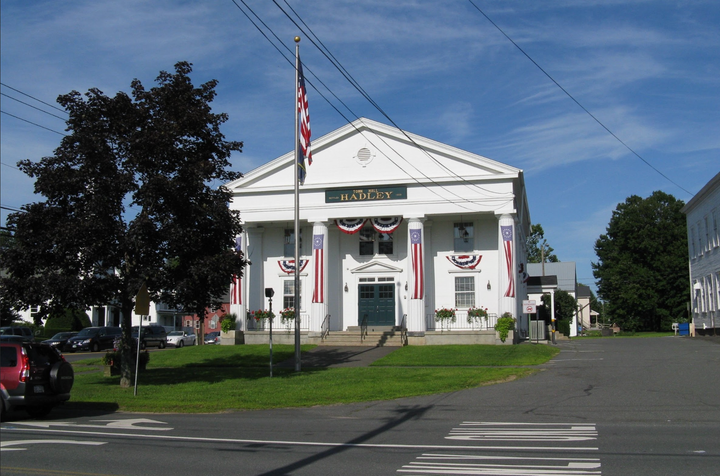College Reacts to Department of Education Executive Order
On March 20, President Donald Trump signed an executive order beginning the shutdown of the Department of Education, which could impact the college’s funding for faculty research and financial aid processes.

On March 20, President Donald Trump signed an executive order beginning the process of shutting down the Department of Education. The order could potentially impact the college’s financial aid processes, engagement with student loan opportunities for students, federal grant programs for student tuition, and faculty research.
The department was created by an act of Congress as a means of managing federal student loans, monitoring student achievement, and supporting programs for students with disabilities. To justify shutting down the department, the administration pointed to declining math and reading scores in public schools despite higher spending per pupil. However, because the department was made by an act of Congress, shutting it down fully requires congressional approval.
Before this executive order, Trump had already been working towards limiting the power of the department by cutting down the workforce and rescinding federal grants.
These actions have caused concern and confusion over the extent of the impact on federal funding and processes both nationally and at Amherst.
Lawrence Kluttz, associate chief communications officer and liaison for government relations, expressed that the college has “been preparing for turmoil at the Department of Education since November.”
While some Amherst students receive federal loans, and some labs on campus receive federal grants to conduct their research, the number of students and labs that access these loans and grants at Amherst is relatively low compared to the national average. For example, 75% of Amherst students graduate without student loan debt, while students who do utilize student loans have less debt compared to students nationally. Still, the college is concerned about how they might have to make up for the lost funding, including turning to methods such as raising tuition, which could potentially deter future applicants.
Additionally, some of the programs that are administered by the Department of Education are congressionally approved, such as the Federal Pell grant program, adding confusion as to whether these programs will continue within a different department or will be discontinued entirely.
Kluttz said that the college is concerned about the “disruption caused by staffing cuts and termination of certain programs and offices, implications for federal financial aid and student loan repayment, and the redistribution of oversight and accreditation responsibility to other agencies.”
In order for the college to prepare for the potential closure of the department, Kluttz emphasized that Amherst is “working closely” with “partners, colleagues at institutions across the country, and our congressional delegation to understand how closure might unfold and to seek opportunities to protect our mission and interests.”
Dean of Financial Aid Gail Holt emphasized that the college is utilizing “responsible management” during this period of uncertainty with regard to the Department of Education. So far, she said, the college has received all of the funds it expected for this year.
Perhaps the departmental program most central to the college’s operations is the Federal Application for Federal Student Aid (FAFSA), which is used to calculate financial aid packages. Holt said that the college is a transitional space, “where most of this year has already happened, as 99.9 or 100% of students have filed their FAFSA for this current year.”
However, Holt worries about students who are currently in the process of reapplying for their financial aid. Even though the FAFSA deadline was March 1 for the upcoming academic year, some may still be working on their applications. “In theory, most students should have filed the FAFSA for the 2025-2026 school year, but I’m not sure I can say that most have,” she said.
Holt emphasized the importance of “reminding students that applications are due now and trying to encourage students to file their application forms now is the preparation that we need.” She said that she cannot predict if there will be impacts on the online system in the coming weeks, so students should file their FAFSA applications as soon as they can to prevent encountering “bureaucratic frustration.”
However, Holt remains skeptical that Congress will take further action to reduce financial aid for students. “I’m fairly confident that I don’t see Congress ceasing or really even curtailing the federal Pell Grant … it’s the biggest source of free money that enables students across the country of all [socioeconomic] levels … to enroll in college of all types,” Holt said.
Kluttz emphasized the point that “even though Amherst is much less reliant on federal grants compared to research universities,” the federal funding that will be cut by the closure of the department “remains an important source of support for the college.” For example, some science labs are supported by federal grants administered by the department.
“Indiscriminate cuts or subject-matter restrictions that constrain entire areas of research are deeply damaging to our nation’s research and innovation ecosystem, and that damage will be felt at the college even if we avoid significant funding disruptions,” he said.
Holt said she does not think that the college needs to worry too much about loans since they are not “currently a part of the Amherst starting financial aid package.” However, because it is “certainly a resource that families do utilize,” she said the financial aid office will “support students with information about where they can continue to get federal loans and ways to finance their education.”
Still, Holt worries that the “publicity about [loans] will be discouraging,” and hopes to educate prospective students about the ways in which Amherst remains relatively insulated from the order. “We will always work hard to make sure that students who are considering Amherst or attending Amherst know about all the options available to them, so that they can make the best decision possible,” she said.




Comments ()